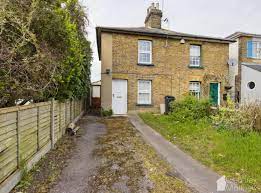Whether you’re a first-time seller or a seasoned property owner, understanding the steps involved and having a solid strategy in place is crucial. In this comprehensive guide, we’ll take you through each stage of the selling process, providing valuable insights and tips to help you achieve the best possible outcome.
-
Preparing Your Property
Before listing your property for sale, it’s essential to ensure that it is in top condition to attract potential buyers. Consider making any necessary repairs or improvements to enhance its appeal and value. Investing in professional staging and photography can also make a significant difference in showcasing your property in the best light.
Preparing your property for sale is a crucial step in attracting potential buyers and maximizing its value. Start by decluttering and depersonalizing the space to allow buyers to envision themselves living there. Remove personal items, excess furniture, and any clutter that may distract or overwhelm buyers. Consider making necessary repairs and improvements to enhance the appeal and functionality of the property. This may include freshening up paint, replacing outdated fixtures, or addressing any maintenance issues.
Investing in professional staging can also make a significant difference in showcasing your property in the best light. A staged home can help buyers visualize the potential of the space and make a positive first impression. Additionally, high-quality photography and virtual tours can effectively showcase your property online and attract more attention from potential buyers.
By taking the time to prepare your property for sale, you can increase its appeal, generate more interest, and ultimately achieve a faster and more successful sale. Whether you’re selling a residential home, commercial property, or investment property, the key is to present it in its best possible condition to attract discerning buyers.
-
Setting the Right Price
Pricing your property correctly is key to a successful sale. Conduct thorough research on comparable properties in your area to determine a competitive listing price. Consulting with a real estate agent or appraiser can provide valuable insights and ensure that your property is priced accurately to attract potential buyers while maximizing your return on investment.
Setting the right price is a critical aspect of selling property that requires careful consideration and analysis. Pricing your property too high can deter potential buyers and prolong the selling process, while pricing it too low may result in leaving money on the table. To determine the optimal listing price, it’s essential to conduct thorough research on comparable properties in your area. Consider factors such as location, size, condition, and recent sales data to gauge the market value of your property accurately.
Consulting with a real estate agent or appraiser can provide valuable insights and expertise in pricing your property competitively. They can assess market trends, analyze comparable sales, and consider any unique features or amenities that may impact the value of your property. By leveraging their knowledge and experience, you can ensure that your property is priced strategically to attract potential buyers while maximizing your return on investment.
Ultimately, setting the right price requires finding the delicate balance between attracting buyers and maximizing value. By taking the time to research the market, seek professional advice, and carefully evaluate your property’s unique attributes, you can set a competitive listing price that increases your chances of a successful sale.
-
Marketing Your Property
Utilize a variety of channels, including online listings, social media, signage, and print advertising, to showcase your property’s features and attract interest. High-quality photos, detailed descriptions, and virtual tours can help capture the attention of prospective buyers and generate inquiries. Consider working with a real estate agent who has a strong marketing strategy and access to a network of buyers and resources.
Effective marketing is essential for attracting potential buyers and generating interest in your property. In today’s digital age, there are numerous channels and strategies available to reach a wide audience of prospective buyers.
Start by creating compelling listing materials that highlight the unique features and selling points of your property. Utilize high-quality photography, virtual tours, and detailed descriptions to showcase its best attributes and capture the attention of potential buyers.
Online listings are a powerful tool for reaching a broad audience of homebuyers. List your property on popular real estate websites and platforms, ensuring that it is presented prominently and professionally. Social media can also be a valuable marketing tool for promoting your property to a targeted audience. Share photos, videos, and listing details across your social media channels to attract attention and generate inquiries.
In addition to online marketing, consider traditional advertising methods such as signage, flyers, and print advertisements. These can be effective for reaching local buyers and generating interest in your property.
Working with a real estate agent who has a strong marketing strategy and access to a network of buyers can further enhance your property’s exposure and increase its chances of a successful sale. By utilizing a combination of online and offline marketing tactics, you can maximize visibility, attract qualified buyers, and ultimately achieve the best possible outcome when selling your property.
-
Showing Your Property
Once your property is listed, be prepared to accommodate showings and open houses to allow potential buyers to view the space firsthand. Keep your property clean, organized, and well-maintained to make a positive impression. Be flexible with scheduling and responsive to inquiries to accommodate the needs of prospective buyers. Consider offering incentives such as flexible closing dates or home warranties to entice serious buyers and expedite the selling process.
-
Negotiating Offers
When you receive an offer on your property, carefully review the terms and conditions before making a decision. Be prepared to negotiate with the buyer to reach a mutually beneficial agreement. Having a clear understanding of your bottom line and priorities can help guide your negotiations and ensure that you achieve the best possible outcome.
-
Closing the Sale
Once you’ve accepted an offer, the closing process begins. This involves finalizing the sale agreement, completing any remaining paperwork, and transferring ownership of the property to the buyer. Work closely with your real estate agent, attorney, and other professionals involved in the transaction to ensure a smooth and successful closing. Be prepared to address any last-minute issues or concerns that may arise and cooperate with the buyer to facilitate a timely and seamless transition.
Conclusion:
By following the steps outlined in this comprehensive guide, you can navigate the selling process with confidence and maximize the value of your property. Whether you’re selling a residential home, commercial property, or investment property, the key is to be proactive, informed, and adaptable throughout the process. Remember to leverage the expertise of real estate professionals and utilize available resources to support your efforts. With dedication and perseverance, you can successfully sell your property and achieve your goals. If you’re considering Selling Property Harlow, this guide will serve as a valuable resource to help you navigate the process effectively.



